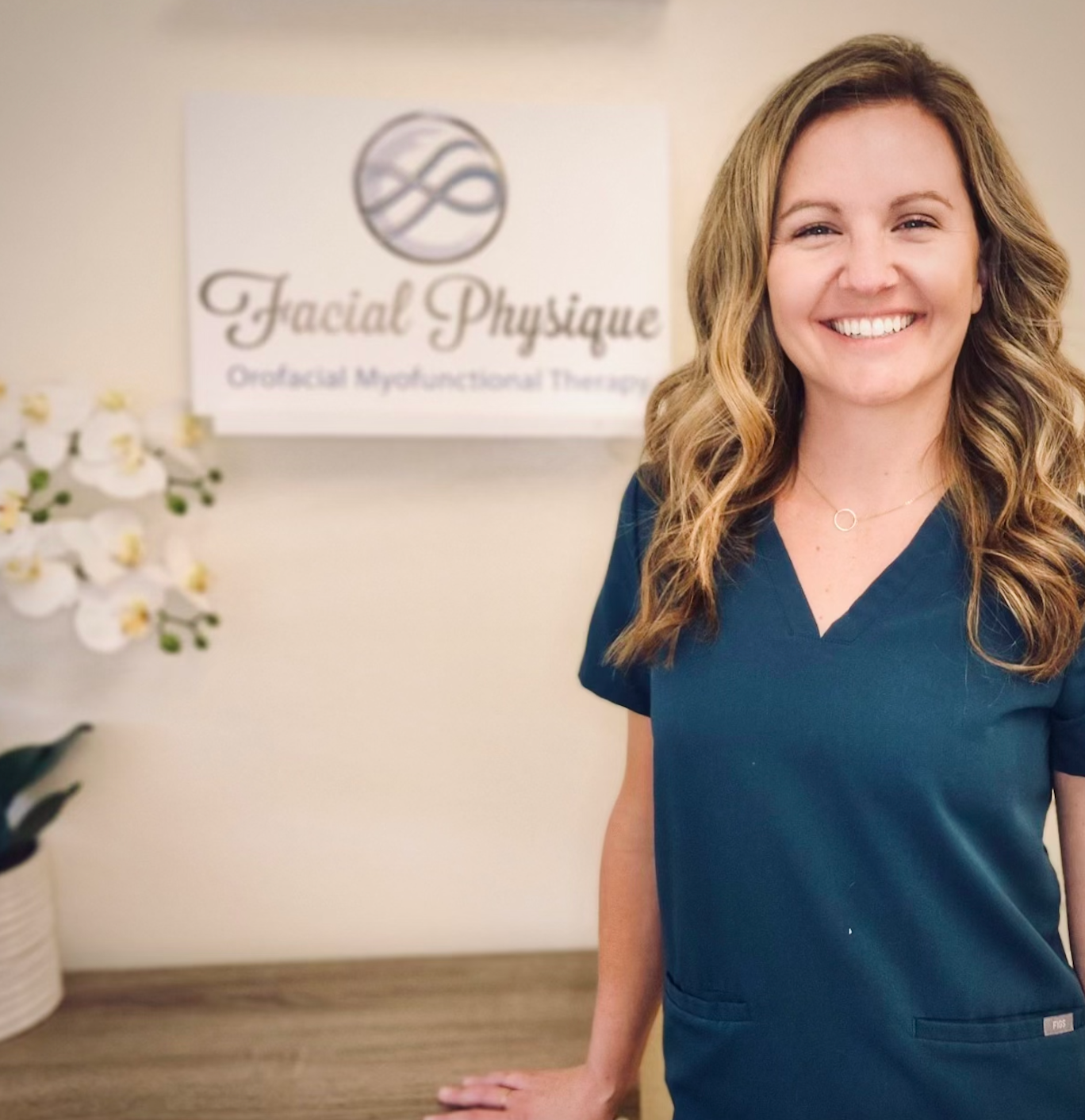What is Myofunctional Therapy?
What Is Myofunctional Therapy?
Discover Its Benefits for Better Health in Poway

Have you ever wondered how mouth breathing, poor tongue posture, or snoring might be affecting your health? If so, you’re not alone. Many people in Poway are turning to myofunctional therapy to address these issues and more.
In this blog, we’ll dive into what myofunctional therapy is, how it works, and why it’s a game-changer for individuals and families in Poway
What Is Myofunctional Therapy?
Myofunctional therapy is a non-invasive, exercise-based treatment designed to improve the function of the muscles in the face, mouth, and throat. By retraining these muscles, the therapy promotes:
- Proper Breathing Patterns: Transitioning from mouth breathing to nasal breathing.
- Optimal Tongue Posture: Ensuring the tongue rests correctly against the palate.
- Efficient Swallowing: Reducing strain and improving digestion.
- Improved Sleep Quality: Alleviating snoring and sleep apnea symptoms.
Whether you’re addressing sleep-disordered breathing, orthodontic concerns, or jaw pain, myofunctional therapy focuses on correcting the root causes of dysfunction.
Who Benefits from Myofunctional Therapy in Poway?
Myofunctional therapy is suitable for people of all ages. Here’s how it helps different groups in Poway, Ca:
Children
- Improves mouth breathing, thumb-sucking habits, or messy eating
- Supports proper craniofacial development to prevent future health issues.
- Prepares young patients for orthodontic success.
Adults
- Reduces snoring and mild sleep apnea in conjunction with sleep physician
- Reduces TMJ discomfort, teeth grinding, or jaw tension in conjunction with a dentist
- Reduces risk of orthodontic relapse after braces or aligners.
Signs You May Need Myofunctional Therapy
If you or a loved one in Poway experience any of the following, it may be time to consider myofunctional therapy:
- Chronic mouth breathing or open-mouth posture.
- Snoring or restless sleep.
- TMJ discomfort
- Orthodontic concerns, including crowded teeth or relapse after braces.
What Clients in Poway Say About Myofunctional Therapy
⭐ "Tamara helped my 7-year-old son stop mouth breathing within weeks! His sleep and energy have improved so much. Highly recommend!" – Sarah J.
⭐ "After years of TMJ pain, I finally found relief through myofunctional therapy. I’m breathing better, and the headaches are gone!" – Alex T.
⭐ "Tamara’s expertise is unmatched. Her virtual sessions made it so easy to stay consistent with therapy, even with my busy schedule." – Jennifer L.
How Myofunctional Therapy Works
Here’s what to expect from a myofunctional therapy program in Poway:
- Consultation: Review of signs and symptoms, creating the team and giving recommendations for your health
- Functional Assessment: A detailed evaluation of your breathing, tongue posture, and orofacial muscle function.
- Customized Plan: A personalized therapy program designed to meet your specific needs.
- Daily Exercises: Simple, targeted exercises to retrain and strengthen orofacial muscles.
- Progress Tracking: Regular follow-ups to monitor improvements and adjust the plan as needed.
Why Choose Facial Physique in Poway?
At Facial Physique, we specialize in helping individuals and families in Poway achieve better health through myofunctional therapy. Here’s what sets us apart:
- Expert-Led Care: As a certified specialist in orofacial myology and mentor, I bring years of experience to every session.
- Tailored Programs: No two clients are the same—your therapy plan is uniquely designed for you.
- Convenient Access: Located in Poway with virtual options available.
- Proven Results: Our clients report significant improvements in sleep, breathing, and overall quality of life.
Frequently Asked Questions
Q: Is myofunctional therapy suitable for kids?
A: Yes! Early intervention helps guide proper craniofacial growth, improving long-term health outcomes.
Q: Can therapy help with sleep apnea?
A: Myofunctional therapy has been shown to reduce symptoms of mild to moderate sleep apnea by improving airway muscle tone and breathing patterns. Link to meta-analysis here-
https://pmc.ncbi.nlm.nih.gov/articles/PMC4402674/
Q: How long does therapy take?
A: Most programs last 6–12 months, but results vary depending on the individual.
Serving Poway and Beyond
We proudly provide myofunctional therapy for clients in:
- Scripps Ranch
- 4S Ranch and Del Sur
- Escondido
- Rancho Bernardo
- Rancho Peñasquitos
- Virtual Clients
Contact Us Today to Learn More
Ready to explore the benefits of myofunctional therapy? Take the first step toward better breathing, sleep, and health.
📍 Conveniently located in Poway
📞 Call us: 858-848-9660
🌐 Visit our website:
www.facialphysique.com
📱 Follow us on Instagram: @facialphysique
Don’t wait—schedule your consultation today and discover the transformative power of myofunctional therapy!




